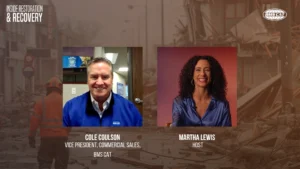A Quick Tutorial on the Mechanics of Steam Boiler Systems
Basic Boiler Functions
Boilers are specialized mechanical devices designed to generate pressurized steam. Steam is an essential raw material that drives industry and commerce worldwide. From the electricity used to power our homes and run our plants, to the plastic and vinyl in our automobiles, the paints and wood in on our homes, and the preparation of the food we eat, steam is used to make our lives more comfortable and convenient.
Steam has several unique properties that make it suitable and economically advantageous to perform this work. The main operating cost associated with a boiler system is not the water, but the energy involved in converting it to steam. However, the water treatment program has a tremendous impact on the overall operating costs of a boiler system, especially for fuel. This is just one of the reasons effective boiler water treatment is so important. So how does a steam boiler system work?
Boiler Mechanics 101
While there are a wide variety of boiler designs, the basic operating principles are the same. Pressurized steam is generated inside the boiler by heating water. The steam is then transported through pipes to the point of use, such as radiant space heating, driving a turbine, or heating a process.
When the water converts to steam, dissolved solids are left behind to concentrate in the boiler water. A portion of the solids must be removed by blowdown to keep concentrations within desired ranges.

Boiler Mechanics 102
As the steam cools, it reverts back to a liquid, which is called condensate (distilled water). Steam traps are used to efficiently collect the condensate for return to the deaerator or feedwater tank. At this point, condensate mixes with the fresh makeup water in a deaerator or feedwater tank. This mixture now becomes the feedwater that is pumped back into the boiler when necessary to compensate for water losses that occur during steam production and blowdown. It’s important to note that the pressure range of the boiler and the end use of the steam dictate makeup water quality, which can range from raw water, to softened water, to high purity de-mineralized water.
Boiler Options
Boilers come in a wide range of sizes and shapes and can be classified based on design, operating pressure, and fuel type. There are four basic types of steam boilers:
- Firetube Boilers – Hot combustion gases pass through tubes running through a sealed container of water. These boilers are typically used for process and heating applications.
- Water Tube Boilers – Water is fed under pressure into boiler tubes surrounded by hot combustion gases. These systems are typically found in large pharmaceutical, petrochemical, and large manufacturing plants, as well as university campuses and government buildings.
- High Heat Flux Steam Generators – Pumps feedwater through a single tube coil, transferring heat from hot gases that convert the water to steam very rapidly. Their simple and small construction along with easy operation and quick start up make these systems ideal for use as auxiliary boilers and when working in limited spaces.
- Electric Boilers – Uses electricity rather than gas to heat hot water via a heating element. These units are typically used when there is no fossil fuel available or in areas that have very low electric power rates.
Water Treatment is Crucial
Boiler systems are an exceptional value due to their long-life expectancy. However, regular maintenance must be performed to ensure trouble-free operation. Scale deposits, excess blowdown, and condensate loss can reduce boiler efficiency and increase operating costs. Water treatment is a critical part of the preventative maintenance program for any boiler system. Chem-Aqua provides customized water treatment solutions for all types of boiler system designs and applications. These solutions protect boilers from the harmful effects that may cause production losses or unexpected shutdowns, insuring safe, reliable, and cost-effective steam production for years to come.
Learn more about Chem-Aqua’s boiler water treatment solutions today.
Read more at chemaqua.com









